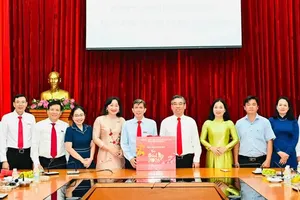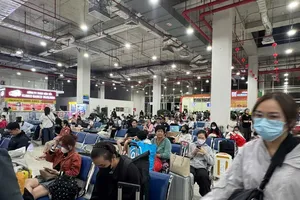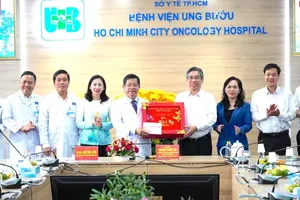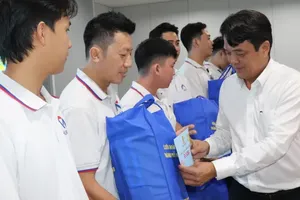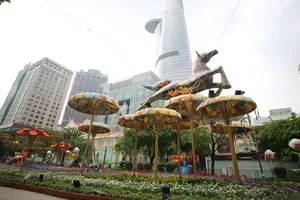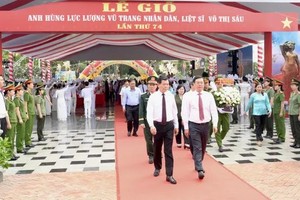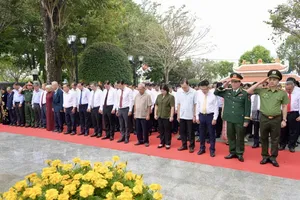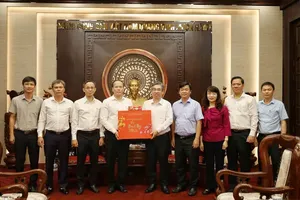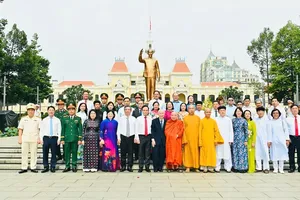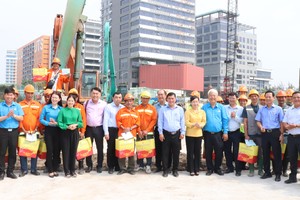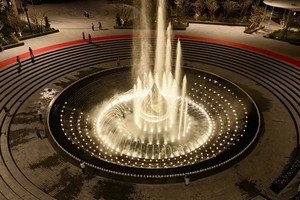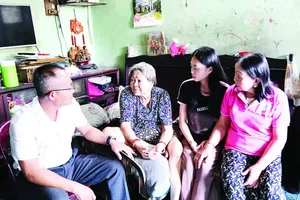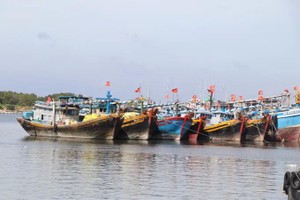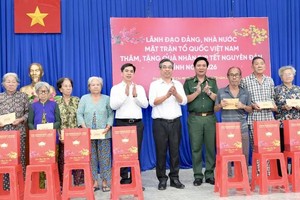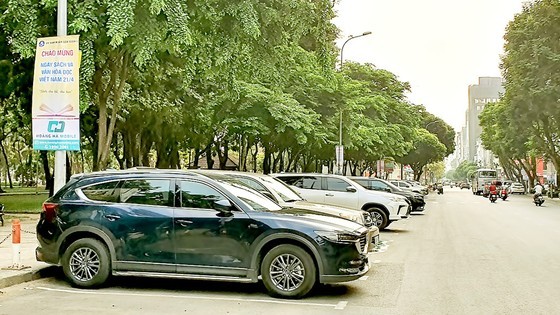 |
HCMC collects a temporary fee for using the roadbed to park cars |
According to the draft resolution to replace the National Assembly’s Resolution 54, the People's Council of Ho Chi Minh City can decide on fees and charges that are not on the list of the Law on Fees and Charges or increase fee collection rate decided by the competent authority. The policy is expected to create more financial resources for Ho Chi Minh City to invest in infrastructure development, better social governance, and especially contribute more to the country.
In 2023, Ho Chi Minh City is expected to collect about VND 3,000 billion in port infrastructure fees. From this revenue, the Department of Transport of Ho Chi Minh City proposed the municipal People's Committee to supplement the medium-term public investment plan for the 2021-2025 period for 11 projects connecting seaport infrastructure, with a total capital of about VND30,592 billion.
These projects include upgrading and expanding Nguyen Duy Trinh Street, the section from Ring Road 2 to Phu Huu Industrial Park (Thu Duc City); three projects on Ring Road 2; construction of the East Ring road section from Phu My bridge to My Thuy intersection, the upgrading of Binh Trieu 1 bridge; and Binh Phuoc 1 Bridge. Amongst projects, the construction cost of the Cat Lai - Phu Huu inter-port road and Thu Thiem 4 bridge is VND 578 billion and VND5,300 billion.
Port infrastructure fee is one of the fees outside the list of the Law on Fees and Charges, which has been applied by the city in the National Assembly’s Resolution 54 on specific mechanisms and policies for the development of Ho Chi Minh City. The southern largest city has implemented it quite effectively. From April 1 to December 31, 2022, the city collected port infrastructure fees of nearly VND 1,900 billion.
Before that, in 2018, Ho Chi Minh City also collected a temporary fee for using the roadbed to park cars in the area. The lowest fee is VND 20,000 per hour for the first two hours and it is VND 25,000 per hour for the third and fourth hours. From the fifth hour onwards, the parking fee in roadbed is VND30,000 an hour. The highest fee of VND 40,000 an hour from the 5th hour onwards which is applicable to roads in districts 1, 3, and 5. This temporary collection of tolls for the use of roadbeds has created favorable conditions for people when the central districts lack parking spaces.
According to the HCMC Department of Transport, toll collection has contributed to ensuring traffic order and safety on the roads. In addition to the already applied underground parking fee, the city is developing a draft to replace the Decision 74 in 2008 on the management and use of roadbeds and sidewalks in the city. Accordingly, the city plans to collect fees for the temporary use of a part of sidewalks as parking spots, business, and advertising, after leaving a minimum of 1.5m for pedestrians.
Implementing specific mechanisms and policies, Ho Chi Minh City also collects environmental protection fees for industrial wastewater treatment with an increase of 5 to 6 times compared to the fee according to current regulations. After 5 years of implementation, the city has earned VND132 billion.
According to the municipal People's Committee, the great benefit from the above environmental protection fee is a significant impact on the awareness and behavior of environmental protection of businesses which have improved their production processes, reduced the amount of water used, and reduced the volume of wastewater discharged into the environment.
Vice Chairman of Ho Chi Minh City People's Committee Vo Van Hoan also said that though the city has prioritized investment resources in developing transport infrastructure, limited capital leads to stagnant investment progress, upgrading and expansion of transport infrastructure; thus, the southern largest city’s infrastructure has not met practical needs and is backward compared to the region.
Therefore, the city continues to propose to the National Assembly to give it more power in implementing fee policies such as collecting parking fees and collecting fees for personal motor vehicles participating in traffic in the city center to have more financial resources for the growth.
